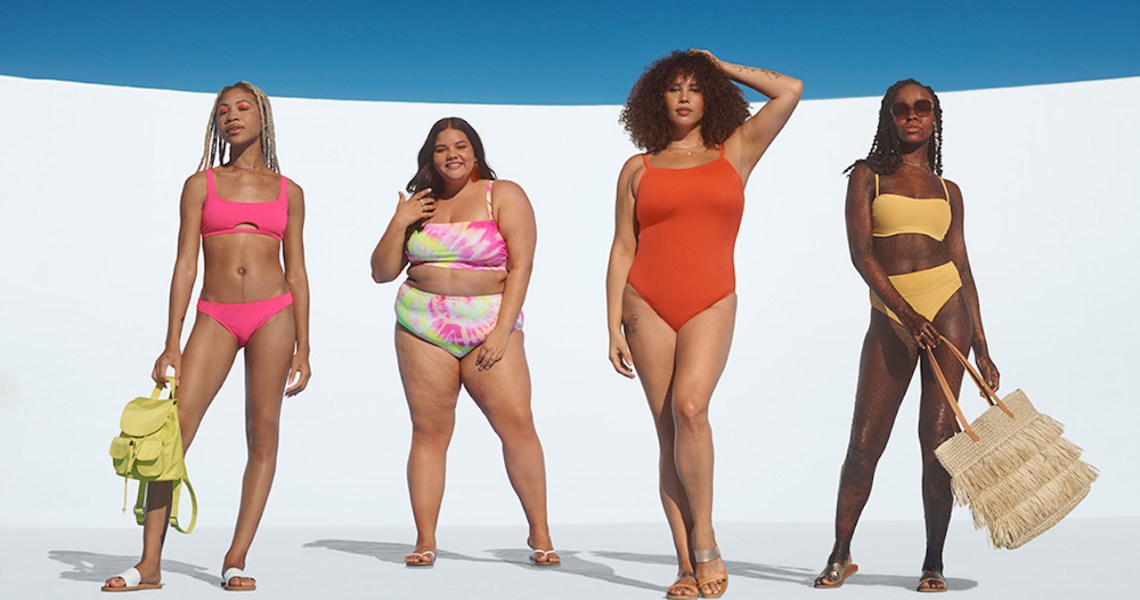Retailers’ private-label apparel brands are taking a hit.
With most big-box companies focused on getting essential items to customers, non-essentials like apparel are taking a backseat. In the last two years, companies like Target, Walmart, Kohl’s and JCPenney have all been ramping up their own apparel brands — often to compete with on another, and with Amazon. Both Target and Walmart have seen success with their brands in recent months. In the third quarter of 2019, apparel sales for Target grew more than 10% from the previous year. Walmart does not break out fashion sales for e-commerce, but it ended 2019 with 600 fashion brands, including 150 premium fashion brands exclusive to Walmart.
Currently, with customers spending more money on essentials, the investment in retailer-owned apparel brands isn’t paying off, while investments in food, beverage and essentials are. Target, for example, saw comparable sales for the latter categories increase 20% in the last quarter.
Others, like Kohl’s, were struggling with apparel before heading into a global pandemic. On the company’s fourth-quarter earnings call in early March, CEO Michelle Gass said Kohl’s did not meet its internal expectations for 2019 due in part to shortcomings with its women’s apparel business.
“Our women’s business remained challenged throughout the year. We recognize that we need a much more significant reinvention in women’s to improve the trajectory moving forward,” Gass said on the call. Women’s apparel makes up about 30% of sales at Kohl’s, according to Telsey Advisory Group. Kohl’s does not break up sales by brand.
Gass said the retailer continues to see success across intimates and activewear — it sells Nike, Under Armour and Adidas, among others — but classic and contemporary offerings are struggling. As a result, the company has decided to exit eight women’s brands, but did not specify which ones on the call.
“While it’s impossible to predict what the future holds, consumers need to support every corner of retail to ensure their favorite private-label brands stick around,” said Peter Akbar, global vice president and chief customer officer of fashion at SAP.
Ad position: web_incontent_pos1
But despite challenges, retailers are still pushing their own brands through paid and organic marketing.
Kohl’s is still focused on promoting its private-label brands. Over the last six weeks, the retailer has been using Pinterest’s new shopping features to drive shoppers to buy at-home outfits from its private-label brands and promote the retailer’s store drive-up option.
Target, on the other hand, is seeing a big year-over-year boost in e-commerce sales for the month of April — about a 275% increase — but apparel is crashing while categories like food and beverage are performing well. This week, the company reported that comparable sales for apparel and accessories slipped 30% in the month of March and are down more than 40% so far in April.
Target declined to comment and pointed to a recent announcement by CEO Brian Cornell on the decline in apparel.
In the last month, Target has continued to promote its private-label brands organically on social media, but only for select brands most likely to sell now, like activewear brand All in Motion, launched in January.
Ad position: web_incontent_pos2
While most retailers are seeing private-label apparel take a hit right now, Sanjeev Sularia, CEO of price intelligence platform Intelligence Node, said those that have invested in these lines and were seeing success before the pandemic won’t see that money and time wasted in the long run.
“Private-label fashion brands from retailers like Target and Walmart could contribute to overall apparel and accessories sales due to the lower retail prices of private-label brands, compared to more established high-street brands. In the long term, retailers’ investment in private-label fashion brands will pay off, since these brands provide a high-margin component for most large retailers,” said Sularia.




